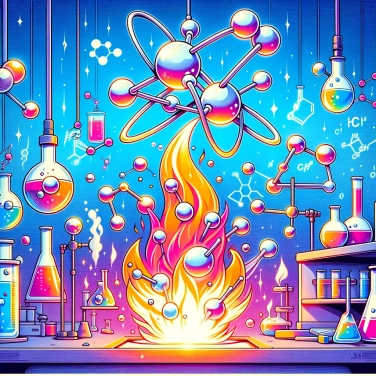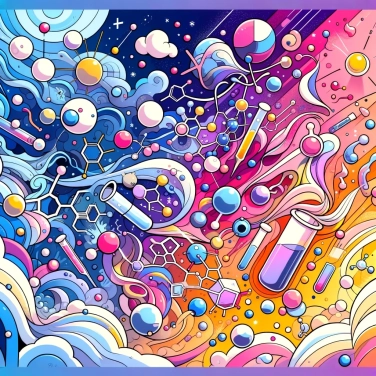Oxygen is necessary for combustion because it is the oxidizer that reacts with the fuel to release energy in the form of heat and light. In the absence of oxygen, combustion cannot take place.

Oxygen acts somewhat like the chemical key that allows combustion to take place. Specifically, combustion is a vigorous chemical reaction where a fuel (often composed of carbon, like wood or gasoline) reacts with oxygen to form new compounds, usually carbon dioxide and water. Without oxygen, there is no reaction: it serves to oxidize the fuel, causing its rapid decomposition and releasing heat, light, or flames. It is therefore this oxygen, by chemically bonding with the fuel, that fuels the combustion and allows any fire to start and continue burning.
Oxygen acts as a booster for combustion, because the more it is available, the faster and stronger the reaction becomes. Combustion with a large amount of oxygen will produce a lot of heat, burn more completely, and generate clearly brighter flames. Conversely, when it is limited, combustion becomes slow, ineffective, and incomplete, resulting in more smoke, tar, and pollutants. Basically, a fire fueled abundantly with oxygen burns better, heats more, and leaves less waste behind.
Without oxygen, it is impossible to maintain efficient combustion. Why? Because oxygen is the key ingredient for chemical reactions to release enough heat and energy to burn properly. When this precious gas is in short supply, combustion quickly becomes weak and often comes to a complete halt.
As a result, in oxygen-poor conditions, you get what is called incomplete combustion. This poor combustion then produces unpleasant, and even dangerous, byproducts like carbon monoxide, a fearsome gas that you cannot see or smell, but which can quickly become toxic in a closed room.
In short, without oxygen, you drastically reduce energy efficiency, increase the production of harmful substances, and simply put, it just doesn’t burn well, or at all.
A classic example is the combustion of wood in a fireplace: without oxygen, there are no flames and the fire eventually goes out. The same goes for a gasoline engine: without a sufficient supply of oxygen, combustion doesn't even occur and your car stays stuck in place. Another example that is relatable to everyone: a candle under an inverted glass. As soon as the oxygen trapped under the glass is exhausted, the flame quickly weakens and then eventually completely disappears. The same happens at high altitude: where the air becomes thinner, burning something becomes difficult because there are fewer oxygen molecules available to fuel the flames.
Pure oxygen is not flammable in itself, but it greatly accelerates the speed and intensity of an existing fire. This explains why specific precautions are necessary when handling pure oxygen, such as in hospitals or during space missions.
In the International Space Station, where oxygen is precious, the burning of candles or open flames is strictly prohibited, as even a small spark can lead to a fire that is difficult to control in microgravity.
Some fire extinguishers use carbon dioxide to smother the flames. Indeed, depriving fire of oxygen is one of the most effective ways to quickly interrupt a combustion reaction.
A candle covered with a simple glass extinguishes quickly because the oxygen inside the container is consumed rapidly, preventing any further oxidation reaction.
A classic combustion process requires oxygen. However, some specific chemical compounds contain their own built-in source of oxygen, allowing for combustion even in the absence of external air, as is the case with fireworks or solid propellants in astronautics.
An increase in the oxygen level significantly accelerates combustion, making it more intense and violent. This can result in a rapid rise in temperature, a faster consumption of fuel, and, in some cases, an increased risk of fire or explosions.
A fire extinguisher can primarily work by temporarily depriving combustion of oxygen, reducing the reaction temperature, or cutting off access to the fuel. For example, the CO₂ extinguisher replaces the surrounding air around the fire with carbon dioxide, thereby depriving the flame of oxygen and smothering the fire.
Covering the candle with an upside-down container gradually limits the supply of oxygen, which is essential for combustion. When the oxygen inside the container is used up, the combustion stops, and the flame goes out.
By blowing, we bring more oxygen to the combustion, thereby increasing its speed and intensity. This allows the fire to burn more strongly and efficiently.

100% of respondents passed this quiz completely!
Question 1/5